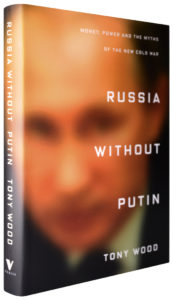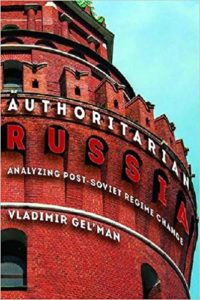 Western democracies need a long-term strategy to ramp up economic pressure on Putin’s Russia, argues Peter Harrell, an Adjunct Senior Fellow at the Center for a New American Security, who served as Deputy Assistant Secretary of State for Counter Threat Finance and Sanctions from 2012 to 2014.
Western democracies need a long-term strategy to ramp up economic pressure on Putin’s Russia, argues Peter Harrell, an Adjunct Senior Fellow at the Center for a New American Security, who served as Deputy Assistant Secretary of State for Counter Threat Finance and Sanctions from 2012 to 2014.
In putting this strategy into practice, policymakers would rely on familiar tools: sanctions, export controls, and national security reviews of foreign investments. But they should think of creative new ways to put additional pressure on Moscow. (Reagan, after all, also authorized large-scale covert attacks on Russia’s energy pipeline infrastructure, he writes for Foreign Affairs:
- In 2011, for example, the European Union initiated an antitrust investigation into the state-controlled Russian oil company Gazprom. The EU settled the investigation in May 2018, in exchange for price concessions allowing Gazprom’s European customers to resell gas across national boundaries. The EU should vigorously enforce this agreement and impose heavy fines on Gazprom and other Russian government-controlled companies should they engage in future anticompetitive activities.
- Litigation can also play a role in the strategy. Ukraine has already soughtbillions of dollars from Russia over the latter’s failure to reliably supply gas since the countries’ 2014 conflict began. Ukraine has also brought a legal challenge at the International Court of Justice over Russia’s seizure of Crimea.
“Russia Without Putin: Money, Power and Myths of the New Cold War,” a new book by left-wing British writer Tony Wood wrongly discounts any ideological dimension to the conflict between Russia and the West, writes CEPA’s Edward Lucas:
Since the Yeltsin era, Russia has become more avowedly Orthodox, more explicitly critical of Western liberalism, and more prone to exceptionalism, on the lines of: “we are a special country, with a special destiny–normal rules don’t apply.” This is not an ideological apparatus on the scale of Marxism. But it is increasingly distinctive.
 Moscow seems intent on removing the fig leaf of Belarusian autonomy, analyst Anne Applebaum writes for The Washington Post:
Moscow seems intent on removing the fig leaf of Belarusian autonomy, analyst Anne Applebaum writes for The Washington Post:
In the past few weeks, Lukashenko and Putin have met at least twice. The Russian finance minister has announced the “further integration” of the two countries. The Belarusian defense minister has declared that U.S. troops in Poland could perhaps constitute a “military threat,” which is not language that Lukashenko’s government has used before. The Russian government has raised energy prices in Belarus. There is talk of Russia taking over a whole suite of Belarusian government operations, including customs, visas, and monetary and tax policies.
“And that’s the “moderate” takeover model,” notes Applebaum, a board member of the National Endowment for Democracy. “A more extreme version could include the declaration of a new political entity, ruled by a single president, presumably one whose first name starts with a ‘V.’” RTWT
 Russia’s shift from status quo to revisionist power reflects a change in circumstances much more than a change in goals, according to analyst Dmitry Gorenburg, Senior Research Scientist at CNA Corporation and Associate at the Davis Center for Russian and Eurasian Studies at Harvard University. Russia’s goals have largely remained the same, but its increase in relative power has allowed it to act more forcefully in support of these goals in ways that it could not permit itself to act in the 1990s or 2000s, he argues for PONARS Eurasia:
Russia’s shift from status quo to revisionist power reflects a change in circumstances much more than a change in goals, according to analyst Dmitry Gorenburg, Senior Research Scientist at CNA Corporation and Associate at the Davis Center for Russian and Eurasian Studies at Harvard University. Russia’s goals have largely remained the same, but its increase in relative power has allowed it to act more forcefully in support of these goals in ways that it could not permit itself to act in the 1990s or 2000s, he argues for PONARS Eurasia:
The argument that Russia’s foreign policy has changed markedly over time comes in two versions. The first version of the discontinuity argument paints a sharp contrast between the pro-Western foreign policy followed by Russia in the 1990s under President Boris Yeltsin with the anti-Western foreign policy preferred by Vladimir Putin after he took over the presidency. In this reading, Russia under Yeltsin was in the process of transitioning to democracy and generally supportive of Western foreign policy initiatives despite some occasional disagreements. Putin’s Russia, on the other hand, has been committed to countering U.S. interests in the world, especially when it comes to the spread of democracy.
“This narrative overstates the continuity of Russian foreign policy under Putin while understating continuities between the 1990s and 2000s,” Gorenburg contends. RTWT







